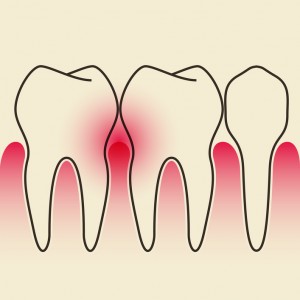Does Insurance Cover Dental Implants?
Dental implants are one of the most highly recommended treatments for missing teeth. They offer a long list of benefits, from promoting healthy bone structure to everyday comfort. However, this...
 Pregnancy is a stressful, wonderful, and busy time. It’s tough to just get enough rest, let alone tend to minute aspects of your health. But your mouth is one area that you shouldn’t neglect during this exciting time.
Pregnancy is a stressful, wonderful, and busy time. It’s tough to just get enough rest, let alone tend to minute aspects of your health. But your mouth is one area that you shouldn’t neglect during this exciting time.
During pregnancy, your gums are at a higher risk of developing gingivitis, or inflamed gums. It may sound innocuous, but it’s the first step toward periodontal disease. Keeping your gums healthy could also prevent complications during delivery of your baby, as well as future health problems for your child.
If you’re recently pregnant, we urge you to schedule an exam so that you can talk to Dr. Baudean about your likelihood of developing gingivitis. Even if you were recently in the office, if we didn’t know about your pregnancy at the time, we recommend a follow-up. Let us provide you with the tools and information you need to see a beautiful, healthy smile throughout this special time.
Gingivitis and periodontal disease have whole-body connections. They’re not influenced by oral factors alone. Patients with fluctuating hormones, like menopausal and pregnant women, react to oral bacteria in a more extreme way. This leads to your gums becoming inflamed and tender. 60-70% of all pregnant women develop some form of “pregnancy gingivitis.” While swollen gums aren’t necessary a danger on their own, it’s the resulting changes that can be dangerous.
 If your gingivitis progresses to periodontal disease, you could experience larger-scale health problems. There’s also a potential link between periodontal disease during pregnancy and preeclampsia. The best treatment is really prevention. Keep your gums healthy to avoid any serious problems stemming from your oral health.
If your gingivitis progresses to periodontal disease, you could experience larger-scale health problems. There’s also a potential link between periodontal disease during pregnancy and preeclampsia. The best treatment is really prevention. Keep your gums healthy to avoid any serious problems stemming from your oral health.
There are a few steps you can take to avoid gingivitis:
Contact us the moment you notice that something may be wrong. We will provide gentle periodontal treatment to soothe the area. This may involve scaling and root planing, or antibiotic treatment. We will take your personal needs into account when prescribing a periodontal regimen, to keep you comfortable and happy.
You’re not alone in planning for your (and your baby’s) oral health. We’re always here to help!